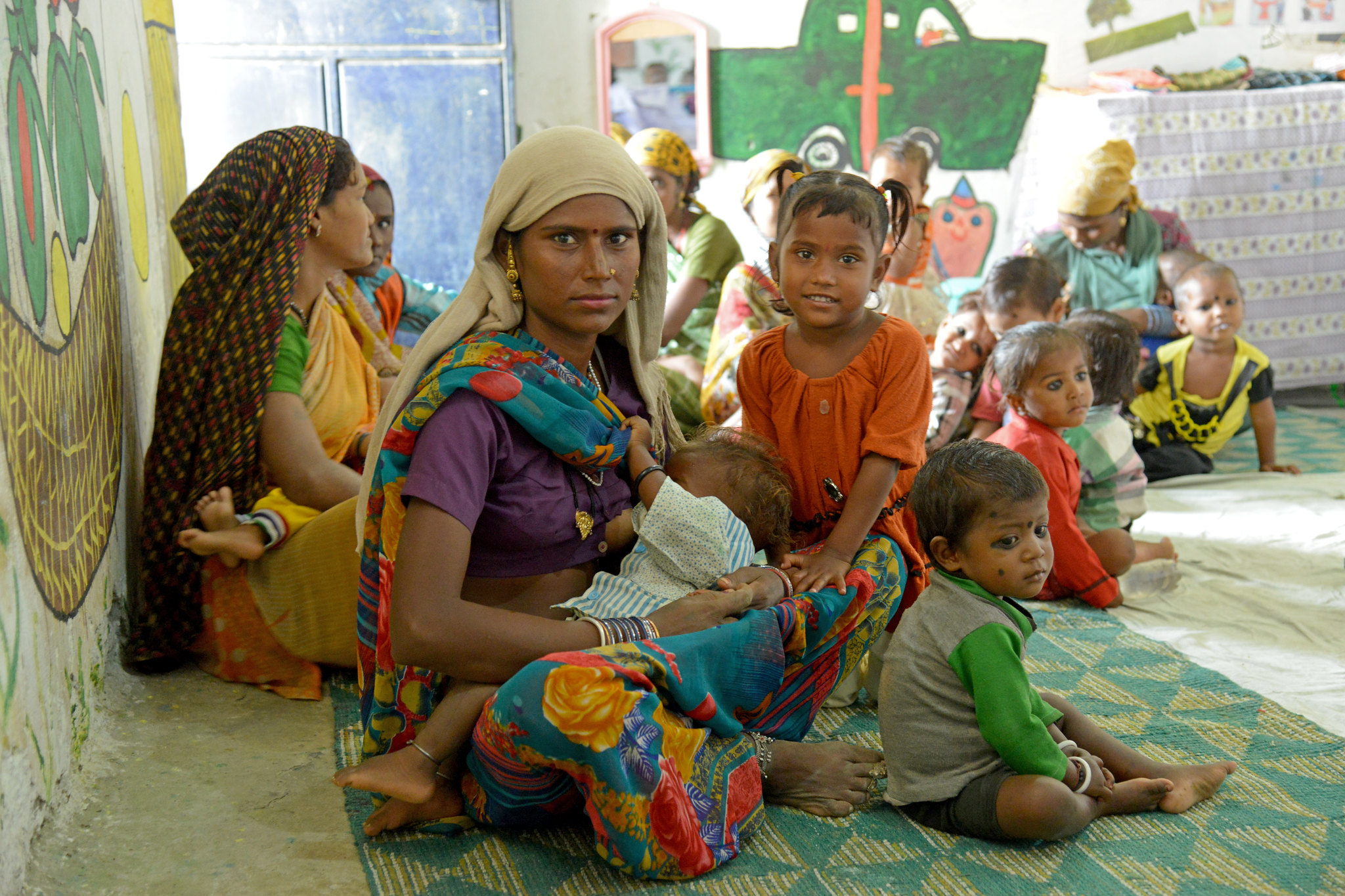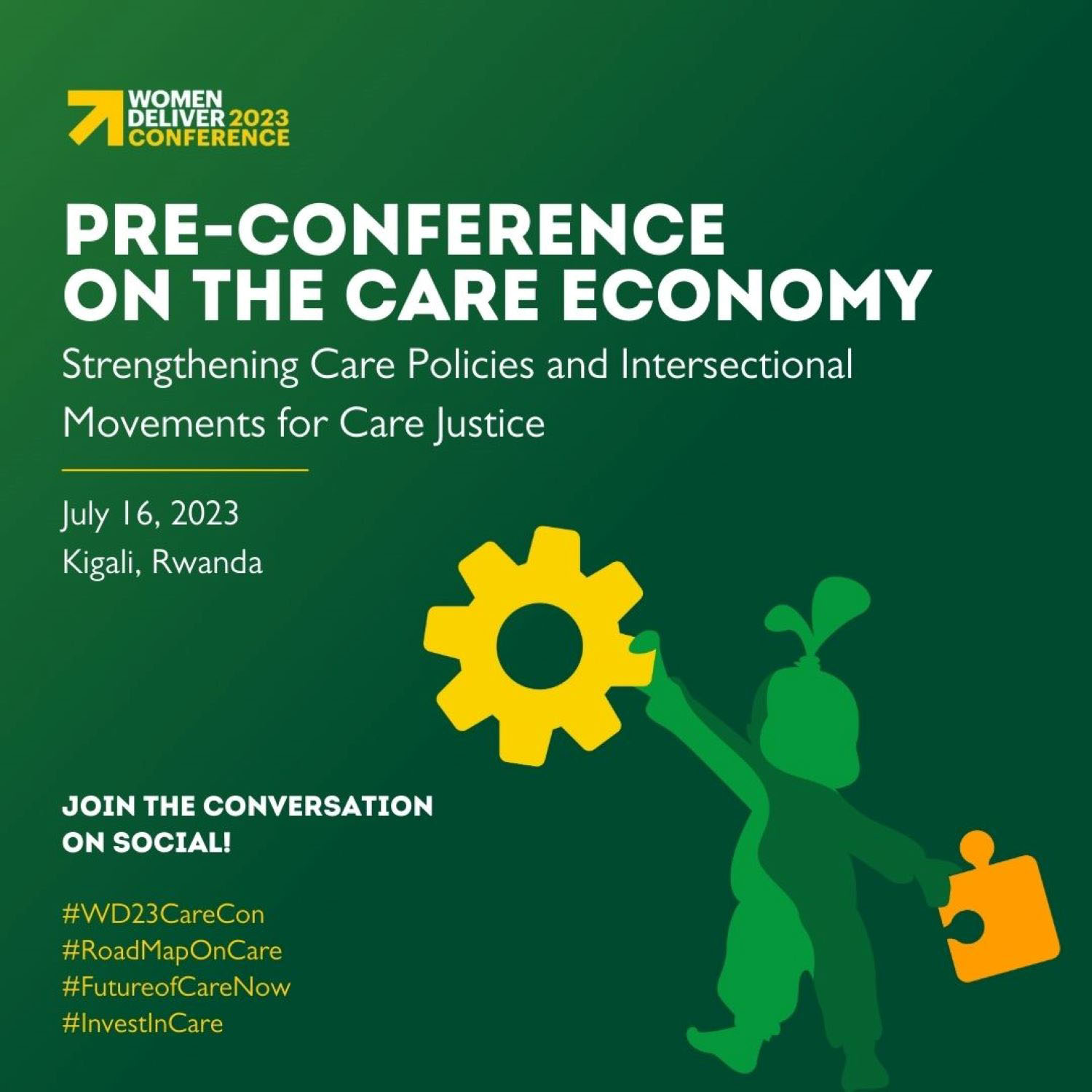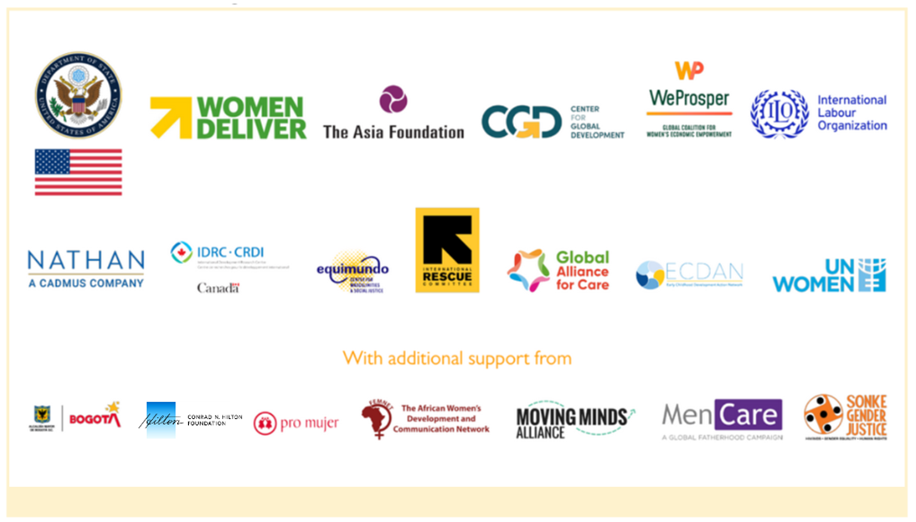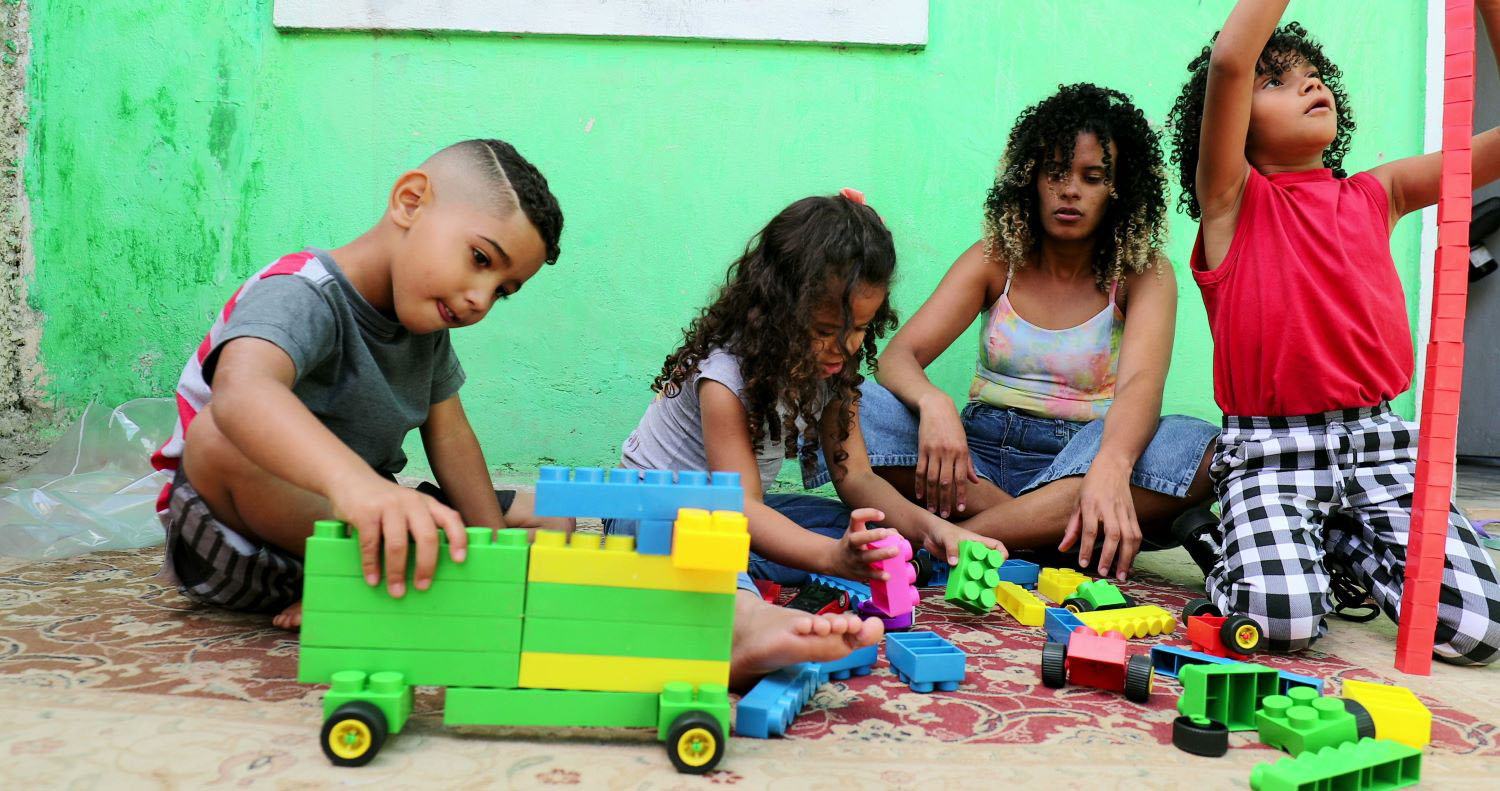Recommended

Event

Blog Post
On July 16, leading up to the Women Deliver 2023 Conference in Kigali, Women Deliver, the Asia Foundation, the Center for Global Development, WeProsper Coalition, and the International Labour Organization (ILO) hosted a Care Economy Pre-Conference, with the theme of “Strengthening Care Policies and Intersectional Movements for Care Justice'' in collaboration with a consortium of 14 partner organizations.
The event convened close to 100 policymakers, advocates, researchers, care workers, grassroots activists, and funders working on the care economy across 32 countries and 66 organizations. The Pre-Conference offered an opportunity to strengthen joint learning, knowledge sharing, and movement building amongst a diverse set of actors to promote collaborative transformative care justice.
Today we have released an in-depth synopsis of the Pre-Conference to share the phenomenal breadth of knowledge, ideas, and actions that emerged across the spectrum of issues that fall under the care economy umbrella. The following summary condenses the main takeaways from that document and the rich discussions held throughout the day.
Ten high-level takeaways
The following recommendations established from the Pre-Conference will be critical to moving the needle on the care economy:
Invest in a sustainable care economy.
1. Increase and diversify financing for the care economy.
2. Invest in quantitative and qualitative data collection and technical capacity to support evidence-based policy.
3. Create robust accountability mechanisms with metrics for tracking financial and policy commitments.
Enhance coordination and communication.
4. Strengthen advocacy for care work, particularly through funding the direct engagement of care recipients and care workers in movements for care justice.
5. Coordinate care policies across sectors to achieve the greatest impact.
6. Create spaces for knowledge sharing across regions on what works and in what contexts to efficiently implement the most effective policies and come together at key global moments.
7. Demystify the care economy and catalyze change around gendered care norms.
Accelerate policy and change across the care ecosystem.
8. Recognize the value of care and ensure labor rights and decent working conditions are a part of the care economy agenda.
9. Develop regulatory frameworks which support quality care service provision.
10. Integrate care considerations into crisis and humanitarian response efforts, including climate change mitigation and response.
Welcoming remarks: increasing global and national investments in care
The Pre-Conference began with a clear call to action: increase investments in care. Gilbert F. Houngbo (Director General, ILO) called for significant investments in care policies, aiming to create 300 million jobs by 2035 and support 600 million women who have been hindered by unpaid family care work in entering the paid labor force . Nabila Aguele (Special Advisor to Nigeria’s immediate past Minister of Finance) urged cross-cutting collaboration for targeted and community-centered care interventions. She proposed country-specific indices to guide gender-responsive budgeting and encouraged the use of evidence to address policymakers’ financing concerns, along with the piloting of care interventions within existing women’s economic empowerment programs or cooperatives. Nadine Gasman (President, Mexico’s National Women’s Institute) stressed the importance of recognizing care as a human right and advocated for global solutions to strengthen care infrastructure, ensure decent work for care workers, and redistribute care responsibilities.
Keynotes: commitments and tools for care policy and financing
Representatives from the governments of Canada, Rwanda, and the United States highlighted their care commitments during their keynote remarks, including new announcements. Canadian Minister Harjit Sajjan and Member of Parliament Arielle Kayabaga announced new significant investments in the care economy, including the Time to Care initiative (USD 5.2M in Kenya for transformative gender norms, care policies, and legislation) and the Scaling in Care Innovation in Africa (USD 25M to expand successful African care models). Minister Jeannette Bayisenge highlighted Rwanda’s efforts to advance care infrastructure needs. Ambassador Geeta Rao Gupta stressed the collective responsibility to build care ecosystems centered on women, care givers, and care receivers, and emphasized the U.S.'s dedication to prioritizing care in global forums like the G7 and APEC summits. Chidi King (ILO’s Gender, Equality, Diversity & Inclusion Chief) underscored the compelling case for care investments, including forthcoming evidence that every dollar invested in closing the childcare policy gap could result in an average increase of $3.76 in global GDP by 2035. King also shared powerful tools - the Care Policy Portal and the Care Policy Investment Stimulator - to assist policymakers in making informed decisions about care investments.
Opening plenary: diversifying funding and supporting innovative care delivery models
The opening plenary brought together regional perspectives with five speakers each reporting insights and recommendations from convenings on the care economy, including the Bali Care Economy Dialogue, Asia Pacific Care Economy Forum, Women Deliver Americas Conference, and Africa Regional Sharefair on the Care Economy.
The panelists – Ankita Panda (Senior Program Officer, The Asia Foundation), Katja Freiwald (Head of Women’s Economic Empowerment & Migration, UN Women Asia and The Pacific), Memory Kachambwa (Executive Director, FEMNET), Carmen Correa (CEO, ProMujer), and Diana Rodríguez Franco (Secretary for Women Affairs, City of Bogotá) – made several key recommendations for further advancing the care economy:
1. Define and demystify care and use tools like the Africa Care Economy Index to evaluate and advocate for progress towards an equitable care economy.
2. Promote adaptability of innovative care practices across regions to transform care delivery through new models such as Bogotá’s Care Blocks and by exploring a broad set of approaches such as involving entrepreneurs, public-private partnerships, and non-profits.
3. Channel greater and more diversified funding into the care economy.
Roundtables: adopting crosscutting approaches to care
The eleven roundtable breakout discussions featured thematic focus areas across the landscape of the care economy. Discussed themes included care intersections with migration, health, elder and disability care, climate change adaptation, and care in emergency and humanitarian settings. The roundtables also included dialogues about the care ecosystem, including care investments, data, delivery models, promotion of decent work and the engagement of men and boys. Local care policies and programs were cross-cutting to serve as blueprints for scaling to the national level.
Each roundtable was tasked with identifying key insights and policy priorities to be shared with the larger group. The insights and priorities from these discussions have been collected and will inform an upcoming Global Roadmap for Action on the Care Economy over the next two years.
Lightning talks: intersections with GBV and gender norms
Lightning talks addressed the intersection of care and gender-based violence (GBV) and the need to shift gender norms regarding care work by engaging men and boys. Priya Dhanani (Ph.D. Candidate, Monash University) emphasized how GBV hinders women's engagement in paid work and highlighted the broad impact of imbalanced care responsibilities across formal and informal sectors to all. Gary Barker (President and CEO, Equimundo) underscored the need to engage men and boys in shifting care norms by promoting narratives that normalize male caregiving roles.
Panel 1: Advancing Care and Movement Building in sub-Saharan Africa
Moderated by Diana Macauley (MenCare Global Co-Coordinator, Sonke Gender Justice), this panel featured Lynette Okengo (Executive Director, Africa Early Childhood Network), Joyce Njoki (Director of Knowledge Management, Uthabiti Africa), and Lucy Minayo (Director, Home Based Childcare Initiative). Lynette emphasized the need for collaboration in mapping the care space and avoiding duplicating efforts. Joyce highlighted the role of data in getting technocratic buy-in on proposed solutions. Lucy flagged the importance of building systems that support home-based childcare (HBCC) providers, improving quality, coordination, knowledge exchange, and recognition. A more detailed description of the panel is available in the accompanying blog.
Panel 2: Elevating Care Across Global and Regional Platforms
Moderated by Kate Francis (Technical Director, Cadmus Group), this panel featured Dr. Jemimah Njuki (Chief of Economic Empowerment, UN Women), Laura Rawlings (Lead Economist, World Bank Gender Group), and Sumitra Mishra (Executive Director, Mobile Creches India). The expert panel provided insights on elevating care at global forums to catalyze government action and commitments. Focused on the G7, G20, and the United Nations General Assembly (UNGA), the discussion highlighted the need to reflect the priorities of service providers and frontline care workers in policymaking. Jemimah highlighted the growing recognition of care's significance, exemplified by the UN General Assembly's establishment of the International Day of Care and Support (October 29). Laura presented the World Bank's fresh efforts to boost care-related investments, including the Invest in Childcare Initiative, proposed Gender Strategy, and upcoming care economy thematic note. Sumitra flagged how fostering G20's care priorities showcased the relevance of domestic care movements and underscored the need to empower frontline care providers’ to advocate for policy alignment.
Panel 3: Strengthening Care Financing Mechanisms
Moderated by Flaubert Mbiekop (Senior Program Specialist, IDRC) this panel featured Jamille Bigio (Senior Coordinator for Gender Equality, USAID), Diana Rodríguez Franco (Secretary for Women Affairs, City of Bogotá), and Brett Weisel (Global Policy and Advocacy Lead, ECDAN). Jamille emphasized care’s critical role as an economic and infrastructure investment, and U.S.’s commitment to put care at the G7’s top of the agenda as vital for WEE, early childhood development, and gender equity. Diana introduced Bogota’s Care Blocks—a city-level initiative that builds upon existing infrastructure and philanthropic and international partnerships to centralize services for caregivers and care receivers. Brett underscored the need for a grassroots approach to build political will and public demand to boost investments and awareness raising for global care.
Next steps
This summary offers a snapshot of the fruitful discussions and strategic thinking by care actors. A detailed description of each activity is available in the synopsis of the Women Deliver Care Economy Pre-Conference. The insights from this gathering will inform a forthcoming Global Roadmap for Action for the Care Economy, in collaboration with stakeholders from across the care ecosystem. This Global Roadmap will build on care economy roadmaps developed at the national and regional level to provide a framework for recommendations and actions on the global care economy. It will outline achievable recommendations and goals over the next two years, along with clear metrics and indicators against which global progress can be measured. In addition, it will pinpoint key moments where the global community can come together to propel action on the care economy. Join our newsletter to stay updated!
Disclaimer
CGD blog posts reflect the views of the authors, drawing on prior research and experience in their areas of expertise. CGD is a nonpartisan, independent organization and does not take institutional positions.







